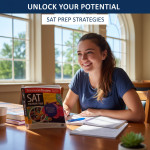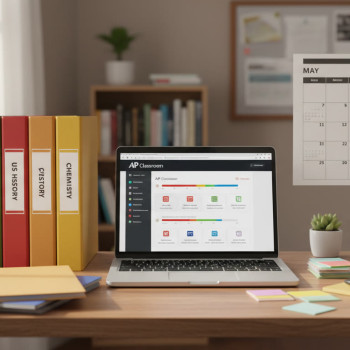Why AP Exams Matter for Bocconi Aspirants
Thinking about Bocconi University for economics, management, or international business? Smart move. Bocconi’s global reputation, rigorous curriculum, and strong industry links make it a top choice. If you’re coming from a system that uses Advanced Placement (AP) exams, these tests can play a big role in your application story — not just as scores, but as evidence of intellectual curiosity, academic readiness, and focused preparation.

AP Scores: More Than Numbers
Bocconi admissions reviewers look for applicants who can thrive in quantitative and analytical environments. AP scores — especially in subjects like Calculus, Statistics, Microeconomics, Macroeconomics, and Computer Science — tell a clear story: you can handle college-level rigor. But scores are only part of the narrative. Which APs you choose, how you perform over time, and how you communicate your learning in essays and interviews are equally important.
Which AP Courses Matter Most for Business and Economics at Bocconi
Not all APs are created equal when it comes to business and economics admissions. Here’s a practical prioritization to help you plan a 2–3 year high school roadmap that aligns with Bocconi’s expectations and curricula.
Primary APs (High Impact)
- AP Calculus AB/BC — Essential for demonstrating math readiness; BC shows deeper commitment and ability to cover multivariable-prep topics more easily in first-year courses.
- AP Microeconomics and AP Macroeconomics — Directly relevant: show an early understanding of economic principles, which is valuable for admissions and early coursework.
- AP Statistics — Increasingly important in economics and business analytics; critical for data-driven thinking.
Secondary APs (Strategic Enhancers)
- AP Computer Science A or Principles — Programming and computational thinking are major pluses for modern economics and data analysis.
- AP English Language and Composition — Clear writing and argumentation skills help essays, recommendation letters, and the overall academic profile.
- AP Psychology or AP Human Geography — Useful to demonstrate interest in human behavior, markets, or socio-economic patterns.
Elective APs (Nice to Have)
- AP Environmental Science — if you’re interested in sustainability and ESG angles in business.
- AP World History or AP European History — to show depth in global perspectives that pair well with international programs.
How to Build a Winning AP Schedule (by Year)
Below is a suggested plan most students can adapt based on when they start APs, strengths, and school offerings. The goal: progressively increase challenge while maintaining high performance.
| High School Year | Sample APs | Focus |
|---|---|---|
| 10th Grade | AP World History / AP Human Geography | Build reading, contextual thinking, and try one exam to learn the AP process |
| 11th Grade | AP Calculus AB, AP Statistics, AP English Language | Establish quantitative and communication foundation |
| 12th Grade | AP Calculus BC (if available), AP Microeconomics, AP Macroeconomics, AP Computer Science | Demonstrate depth in economics and math; finish strong |
Notes on Timing
Start with one or two APs if it’s your first time. Many students test the waters with an AP in a less technical subject, then step up to Calculus and Economics. Maintaining high scores (4s and 5s) across a focused group of APs often matters more than taking every possible exam.
Translating APs into a Compelling Application
APs are tools. Use them to tell a consistent, authentic story across your application. Admissions officers ask: who are you as a learner, and how prepared are you for Bocconi’s environment?
Essays and Personal Statements
- Connect learning in AP courses to real interests. Don’t simply list grades — explain a project, an “aha” moment in economics, or how a statistical analysis changed your view of a local problem.
- Use AP coursework to support claims about intellectual curiosity. For instance, describe how an AP Computer Science project taught you to model economic behavior or how an AP Statistics project informed a school research paper.
Letters of Recommendation
Ask recommenders who know your AP classroom work — teachers for Calculus, Economics, or Statistics — because they can provide concrete classroom anecdotes showing critical thinking, persistence, and quantitative reasoning.
Interviews and Additional Materials
If Bocconi requests an interview or supplemental materials, be ready to discuss an AP-based project or a concept you pursued beyond the syllabus. That’s your chance to highlight initiative and depth.
Study Strategies: From Practice Tests to Mastery
AP exams reward deliberate practice. Below are methods that consistently convert study hours into better scores — and into stronger application credentials.
Core Study Principles
- Active Recall: Instead of rereading notes, close the book and write what you remember. This builds durable memory.
- Spaced Repetition: Schedule review sessions that revisit topics at increasing intervals — that ensures long-term retention for both exams and college coursework.
- Practice Under Exam Conditions: Timed sections reveal pacing issues and replicate pressure.
Subject-Specific Tips
- Calculus: Understand the ‘why’ behind methods. Solve problems both procedurally and conceptually — and work error logs to learn from mistakes.
- Statistics: Interpret results in context. Practice explanations in plain language; statistics is as much about communication as computation.
- Economics: Build models small to large. Practice real-world examples — a local business, a government policy, or global trade — and relate them to AP frameworks.
How to Use AP Scores After You Get Them
Once AP scores arrive, use them strategically. High scores can be listed on your application, sometimes used for course placement, and often signal readiness for Bocconi’s quantitative tracks. If a score isn’t what you hoped, reflect and reframe: did you learn skills you can show elsewhere in the application? Can you take a related online course, do a research project, or pursue an internship that demonstrates growth?
When to Report AP Scores
- Include APs that strengthen your major-related profile; don’t overload the application with marginally relevant tests.
- If a score is weak but you have strong classroom grades in the same subject, your teacher’s recommendation can contextualize performance.
Common Application Concerns from International Students
Many international applicants wonder whether APs will be understood abroad. They will. APs are globally recognized benchmarks; they show admissions committees that you’ve pursued rigorous, college-level study. For Bocconi specifically, emphasize APs that highlight quantitative reasoning, economics understanding, and international outlook.
Balancing National Curriculum and APs
If your school’s national program is already demanding, prioritize 2–3 APs that align with your intended major rather than trying to take every available exam. Consistency and excellence beat breadth without depth.
The Role of Personalized Tutoring: Why Tailored Support Helps
Every student’s path to AP success is different. Personalized tutoring is powerful because it adapts to your pace, gap areas, and college goals. For students applying to Bocconi, that means tutors can emphasize math communication, economic modeling, and the analytical writing skills that carry across application components.
What to Expect from Effective 1-on-1 Tutoring
- Diagnostic Assessments: Identify the precise topics where time is best spent.
- Tailored Study Plans: Weekly goals linked to test dates and application timelines.
- Skill-Focused Sessions: For example, a tutor might spend one session isolating derivatives for Calculus and another on interpreting regression outputs for Statistics.
- Feedback Loops: Regular practice tests with targeted feedback so practice turns into improvement.
Sparkl’s personalized tutoring approach — with 1-on-1 guidance, tailored study plans, expert tutors, and AI-driven insights — fits naturally into this model. When used thoughtfully, these resources help you maximize AP performance while keeping your overall application profile coherent and compelling.
Real-World Example: How APs Strengthened an Applicant’s Bocconi Case
Imagine two applicants with similar grades: both have strong marks in math, but one also pursued AP Calculus BC, AP Statistics, and AP Microeconomics, completed a school research project on local labor markets, and used a tutor to develop a short data-driven paper. The second applicant took only Calculus and didn’t pursue related projects.
The first applicant gives admissions officers a three-dimensional picture: quantitative capability (BC and Statistics), subject interest (Microeconomics), and initiative (research). That pattern often tips the balance in competitive programs because Bocconi values applicants who demonstrate both skills and motivation.
Preparing for the Transition: From AP Classrooms to Bocconi Lectures
Bocconi’s first-year courses can be fast-paced and mathematically rigorous. APs prepare you for this transition, but there are further steps to smooth the path:
- Continue refining mathematical intuition rather than memorizing formulas.
- Build basic programming familiarity (Python or R) if you aim for data-heavy tracks.
- Read widely in economics and business news — this helps you connect classroom theory to current events.
Checklist: AP-to-Bocconi Readiness
| Item | What It Shows | Action |
|---|---|---|
| AP Calculus BC | Strong quantitative foundation | Practice problem solving and proof-style questions |
| AP Statistics | Data literacy and interpretation | Work on real datasets and explain findings in plain language |
| AP Micro/Macroeconomics | Applied economic thinking | Relate concepts to local/global economic events |
| AP Computer Science | Computational problem solving | Build simple models or scripts to analyze data |
Final Advice: Make APs Part of a Bigger Story
AP exams are a powerful element of a competitive application to Bocconi, but like any piece of your profile they work best when integrated into a clear narrative. Use your AP choices to demonstrate genuine interest in economics or business, complement test performance with projects or internships, and let recommenders articulate the qualities that scores alone cannot capture.
Practical Next Steps
- Map out which APs you can take in the next 12–24 months and rank them by impact for your chosen major.
- Set up a study calendar with milestones: topic mastery, full-length practice tests, and review weeks.
- Consider targeted 1-on-1 tutoring to address weak areas and to craft AP-driven application materials — Sparkl’s model of tailored study plans and expert feedback can be a game-changer when used early.
- Design at least one project that connects AP learning to a real question — analyze a dataset, write an economics brief, or present findings to a local group.
Closing Thoughts
Applying to Bocconi with an AP background puts you in a great position — when you plan intentionally. APs tell admissions officers that you’re prepared for a rigorous academic environment; paired with thoughtful extracurriculars, clear essays, and focused recommendations, they help create a coherent and convincing application. Remember: take APs that match your curiosity and future goals, practice deliberately, and use personalized tutoring or guidance when you need precision and momentum.
Study with purpose, tell your story well, and you’ll arrive at Bocconi ready not just to learn, but to contribute. Buona fortuna — and if you want tailored support that maps AP performance into a strategic application plan, consider one-on-one tutoring aligned to your goals and timelines.



















No Comments
Leave a comment Cancel